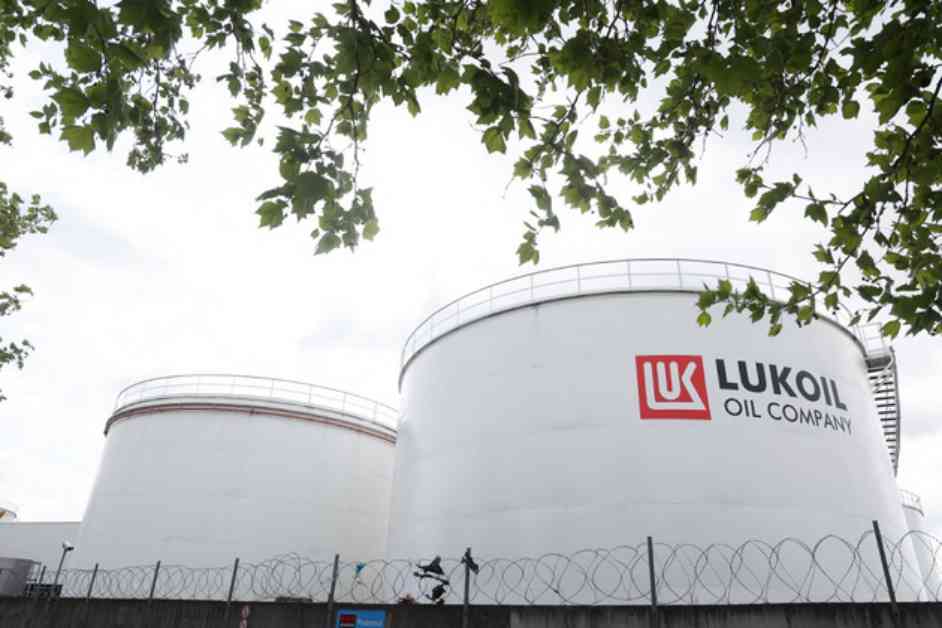Ukrainian Drones Strike Lukoil Refinery in Russia, Sparking Fire
In a daring and impactful move, Ukrainian drones targeted Russia’s Volgograd region in the early hours of Friday, Jan. 31. The attack culminated in one of the drones striking the Lukoil-Volgogradneftepererabotka oil refinery, as reported by local Telegram channels. The aftermath of this attack was nothing short of chaos, with the strike leading to a fire at the facility due to drone debris falling on the site. Regional governor Andrey Bocharov confirmed the incident, revealing that the fire was quickly brought under control. However, amidst the turmoil, one refinery worker sustained injuries and had to be hospitalized.
Residents of the Krasnoarmeysky district were shaken from their slumber by the sounds of explosions and gunfire near the plant around 3 a.m. The scene was described vividly by one resident in a VKontakte group, who wrote, “Horror, the whole apartment shook.” These firsthand accounts provide a chilling insight into the terror that gripped the community in the wake of the attack.
Previous Attacks and Ongoing Tensions
This latest assault on the Lukoil refinery is not an isolated incident but part of a series of targeted attacks on the facility. Ukrainian drones and cyberattacks have been zeroing in on Lukoil installations, creating a ripple effect of instability and unrest in the region. Just two weeks prior to this latest attack, on Jan. 15, a fire erupted at the plant, necessitating the shutdown of its diesel hydrotreating unit. The circumstances surrounding the fire remain shrouded in mystery, with local reports hinting at a possible external impact that triggered the explosion. Russian emergency services have vehemently denied any such allegations, with the Russian Ministry of Defense asserting no drone attacks in the vicinity.
The Lukoil-Volgogradneftepererabotka refinery holds a significant position in Russia’s oil industry, ranking among the top 10 refineries in terms of production output. In 2023, the refinery processed a staggering 13.7 million tons of oil, underscoring its pivotal role in the country’s energy landscape. However, the recent spate of attacks has taken a toll on its operations, leading to a 50% reduction in diesel production, equivalent to approximately 10,000 tons per day. Situated in Russia’s Southern Federal District, the Volgograd refinery plays a crucial role in meeting the country’s diesel demand, accounting for nearly 7% of the total production.
Russian Defense Efforts and Escalating Tensions
The overarching narrative of drone warfare between Ukraine and Russia is emblematic of the escalating tensions between the two nations. The Russian Defense Ministry disclosed that air defense forces successfully intercepted a staggering 49 Ukrainian drones overnight across seven regions. The Rostov region emerged as the epicenter of the drone activity, with 25 drones neutralized, followed by eight in Volgograd, six in Kursk, four in Yaroslavl, and two each in Krasnodar, Belgorod, and Voronezh.
The repercussions of these drone attacks extended beyond mere disruption, with collateral damage reported in various regions. In the Rostov region, drone debris caused a power transmission pole to collapse, plunging a city district into darkness. Meanwhile, in the Voronezh region, a drone collision with a car on the highway resulted in injuries to the driver. These incidents serve as stark reminders of the real-world consequences of military conflicts conducted in the digital age.
The complexities of modern warfare, intertwined with technological advancements and geopolitical rivalries, underscore the urgent need for diplomatic solutions to de-escalate tensions and prevent further escalation. As the world watches on with bated breath, the ramifications of these drone attacks reverberate far beyond the borders of Ukraine and Russia, serving as a poignant reminder of the fragile balance of power in the global arena.

















